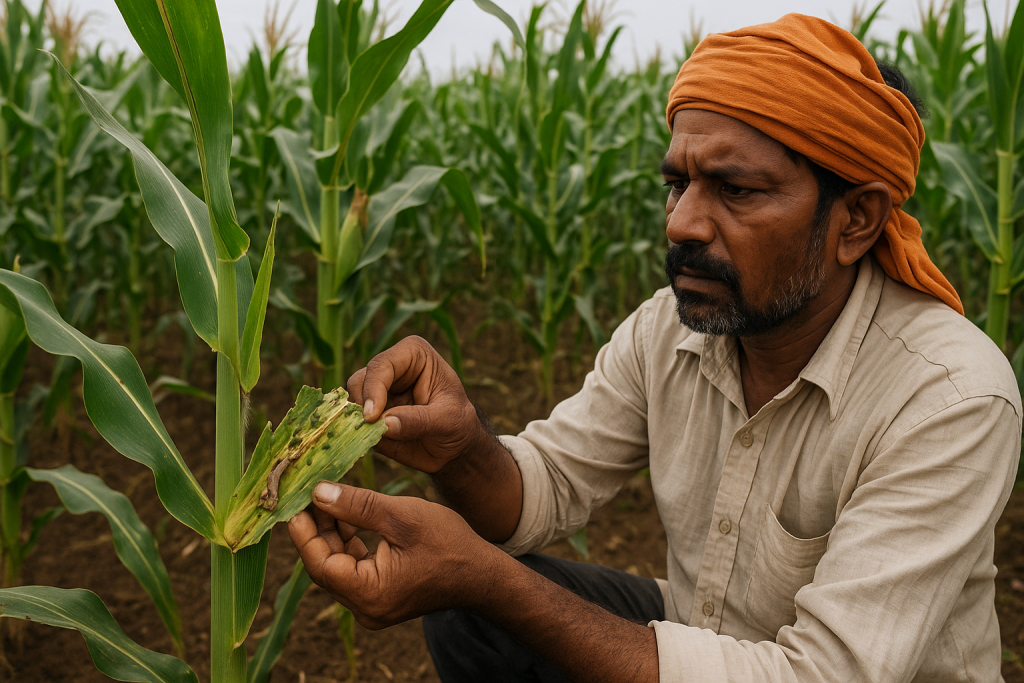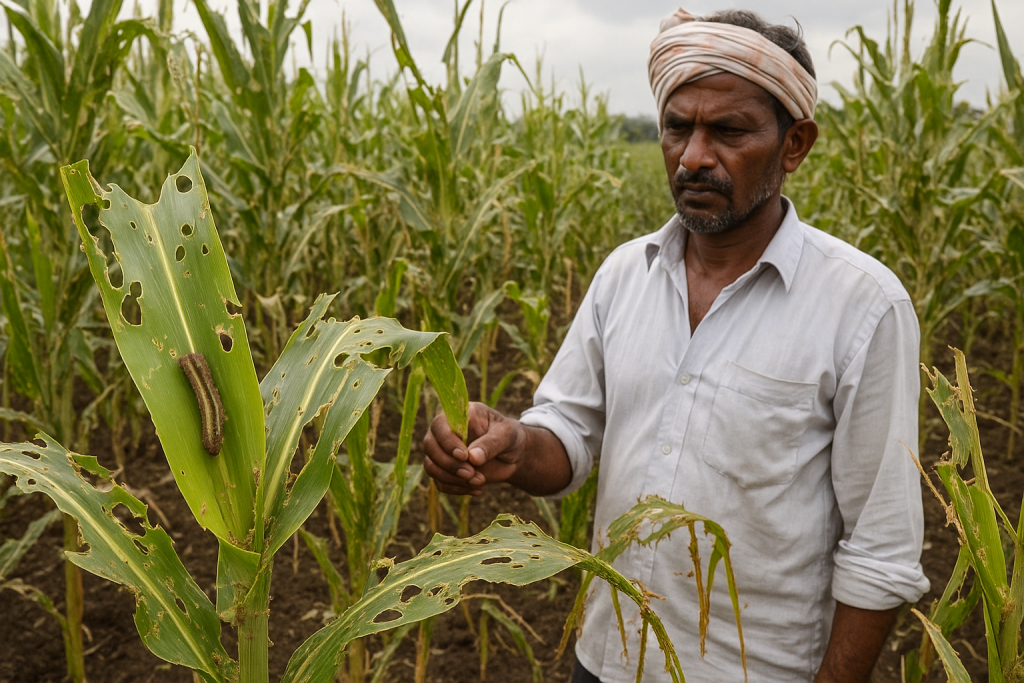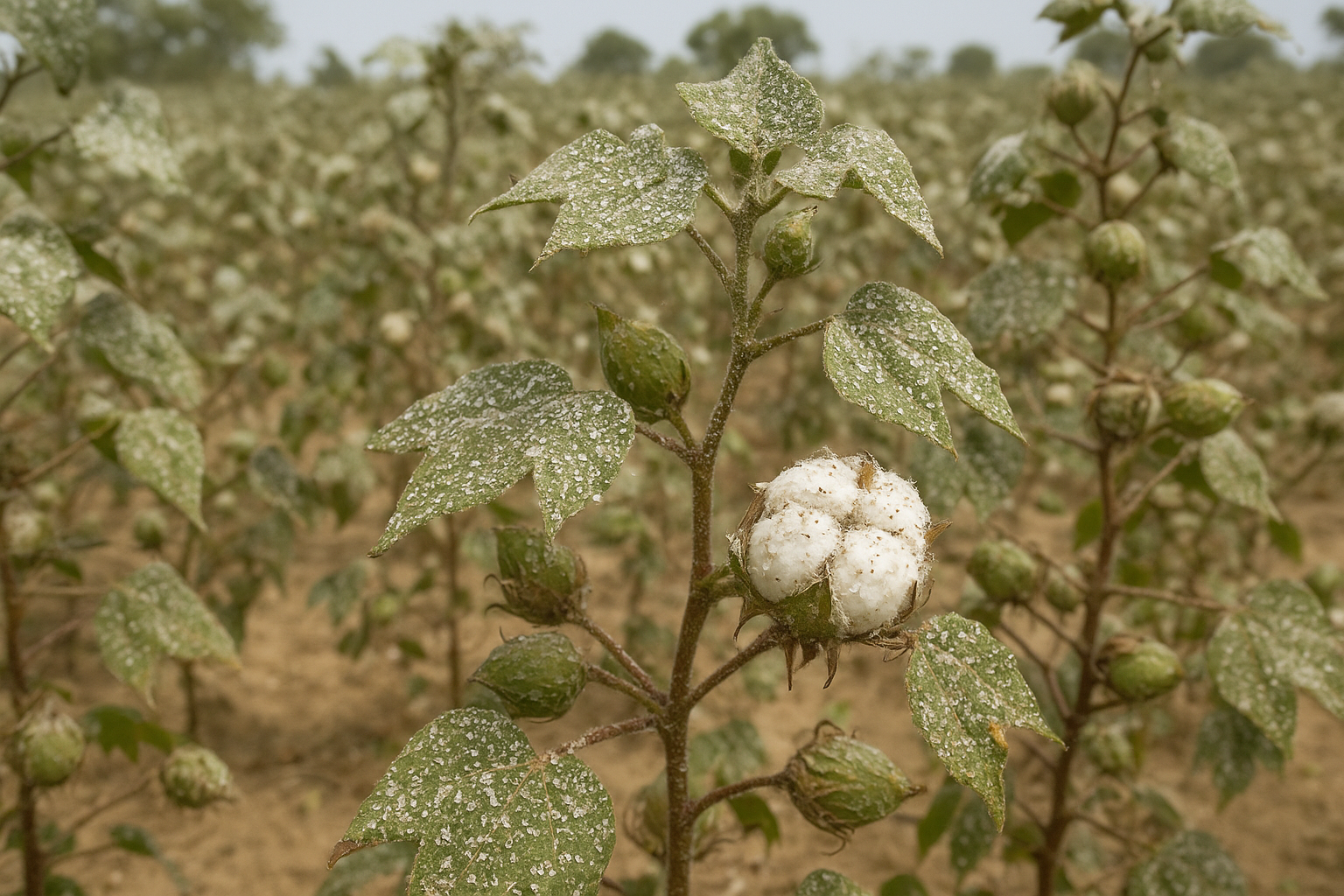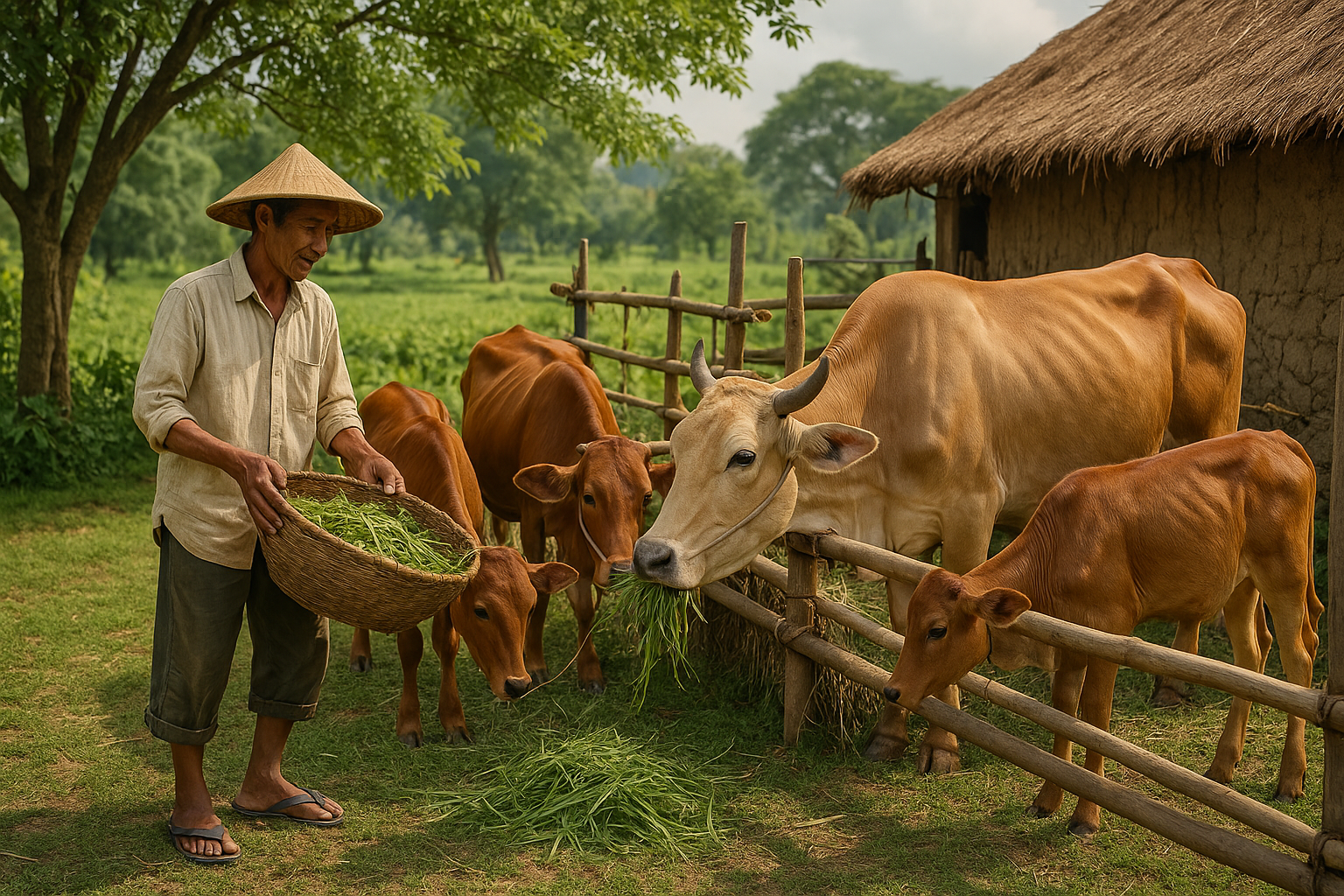A resurgence of the Fall Armyworm (Spodoptera frugiperda) has been reported in parts of Madhya Pradesh and Chhattisgarh, putting thousands of hectares of maize crops at risk. The alarming increase in infestation, confirmed by state agriculture departments and Krishi Vigyan Kendras (KVKs), is being linked to unseasonal rains and rising humidity levels, which have created a favorable breeding environment for the invasive pest.
The Fall Armyworm, first identified in India in 2018, is a notorious pest known for its rapid spread and voracious appetite. It feeds on over 80 crop species, but maize remains its primary target. Farmers across affected regions are witnessing extensive leaf damage, feeding holes, and larvae clusters, threatening early-stage crop growth.

🌽 Affected Regions
Key districts currently reporting infestation include:
- Madhya Pradesh: Betul, Chhindwara, and Seoni
- Chhattisgarh: Rajnandgaon, Durg, and Bilaspur
Agriculture officials have advised farmers to closely inspect fields and report any signs of caterpillar activity. In some cases, over 30% of maize plants have shown signs of infestation, leading to concerns over potential yield losses.
🐛 Why the Sudden Outbreak?
Experts suggest a combination of factors behind the outbreak:
- Extended pre-monsoon showers led to prolonged soil moisture levels, ideal for egg-laying
- Rising night-time temperatures promote larval survival
- Delayed field ploughing left stubble and organic matter, attracting pests
Additionally, overuse of broad-spectrum pesticides in previous years has resulted in resistance buildup, reducing the effectiveness of conventional chemical controls.
🧪 Measures Being Taken
State governments and local agricultural universities are responding rapidly with the following measures:
- Field demonstrations on pest scouting and control
- Distribution of biological control agents like Trichogramma and Metarhizium anisopliae
- Recommendation of targeted insecticides (e.g., Emamectin Benzoate, Spinosad) under expert guidance
- Promotion of pheromone traps and neem-based sprays as eco-friendly alternatives
The Ministry of Agriculture is also considering emergency compensation under crop loss insurance schemes such as PMFBY for heavily affected areas.

👨🌾 Farmer Advisory
Farmers are urged to:
- Conduct daily monitoring during early morning hours
- Destroy affected leaves and larvae manually when possible
- Avoid uncontrolled pesticide use, which can worsen resistance issues
- Contact nearby KVKs or agri-extension officers for proper pest management guidance
🌱 Long-Term Outlook
Agronomists stress the need for integrated pest management (IPM) and crop diversification to build resilience against recurring pest outbreaks. Continued surveillance and responsible pesticide practices will be crucial in minimizing long-term damage from pests like the Fall Armyworm.






